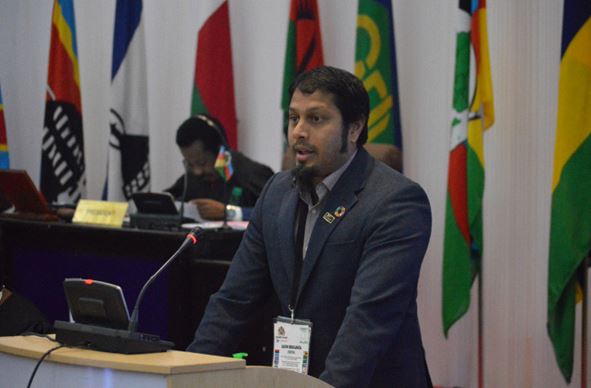By Kizito CUDJOE
A Kenyan economist and Executive Director of the African Forum and Network on Debt and Development (AFRODAD), Jason Rosario, has called for urgent reforms to the global financial and economic architecture.
His call comes on the back of growing economic challenges facing several African countries amid concerns for systemic changes to address these issues. “We have four countries that have defaulted on their debt: Zambia, Ghana, Ethiopia and Chad – with several others on the brink, including Kenya,” Rosario stated.
“This debt crisis has sparked public protests across the continent, with citizens demanding greater accountability and transparency from their leaders.”
Mr. Rosario was speaking in a virtual presser by AFRODAD and emphasised that the current global economic system disproportionately benefits a few wealthy countries and multinational corporations at the expense of developing countries.
“The ecosystem that our countries are functioning in is not serving the interests of citizens, but rather a few countries and multinational corporations who siphon billions out of the continent annually,” he said.
He explained how fiscal gaps created by trade deficits, illicit financial flows and ineffective taxation policies force African governments into a cycle of dependency on borrowing. “Our inability to trade high-value goods or move up the value chain in manufacturing leads to gaps that we need to plug through foreign direct investment,” he said.
“This often results in African nations borrowing heavily to run government operations rather than investing in development, perpetuating a vicious cycle of debt dependency,” he added.
He criticised the governance structure of international debt, particularly the International Monetary Fund’s (IMF) role noting that: “The IMF ensures macroeconomic stability but also acts as an insurance policy guarantor for creditors. This structure traps countries in a difficult position when they need to restructure or reschedule their debt”.
In view of these development, Mr. Rosario proposed a reformed global economic system that is fairer and more just – addressing debt issues from the perspective of borrowers rather than lenders.
“We need a level playing field whereby borrowing countries, particularly African governments, have a powerful voice at the negotiating table,” he asserted.
Furthermore, he called for a transparent negotiation process under the United Nations’ auspices, allowing developing countries to negotiate debt restructuring in a fair and coordinated manner.
He pointed out several upcoming opportunities for reform at the global, continental and national levels. At global level, the United Nations Financing for Development (FfD) process – culminating with a conference in Spain next year – presents a chance to establish a global legal debt framework. “This is a huge opportunity to support African member states in developing a fair negotiation process,” he noted.
At continental level, Rosario pointed to provisions within the African Union (AU) to establish financial institutions like the African Central Bank and African Investment Bank. “These institutions could be game-changers in negotiating on behalf of the continent,” he said.
Nationally, Rosario also stressed the need for robust domestic policies to adapt in the changing landscape of creditors and safeguard against debt crises. “Are our domestic policies in place to help us handle situations where we can’t pay back bonds or need to restructure them?” he asked.
He viewed the current wave of protests across the global south as a crucial moment. “People are realising that the system is not working for them but for a few elites. This realisation is an opportunity for change,” he declared.
The call for reforming the global financial architecture is not just about addressing debt but also ensuring the sovereignty and rights of citizens are protected in a fair and just economic system, AFRODAD maintains.










